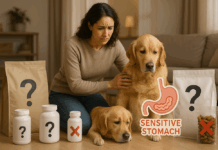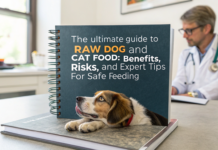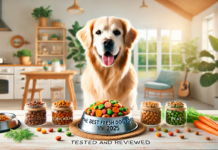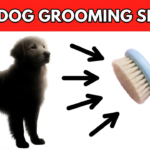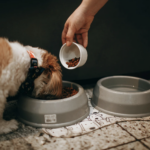Last Updated on May 5, 2024 by Dogs Vets
Dog Feeding Guide: Optimal Portions & Tips
Welcome to the ultimate guide to feeding your dog! As a responsible pet owner, you want to ensure your furry friend gets the best nutrition possible.
In this comprehensive guide, we’ll cover everything you need to know about feeding your dog, from understanding their nutritional needs to tips for optimal portion control.
Understanding Your Dog’s Nutritional Needs:
Before we dive into the specifics of feeding, it’s important to understand your dog’s nutritional needs. Dogs require a balanced diet that includes proteins, carbohydrates, fats, vitamins, and minerals.
Proteins are essential for muscle growth and repair, while carbohydrates provide energy. Fats are necessary for healthy skin and coat, and vitamins and minerals are crucial for overall health.
Choosing the Right Dog Food:
When selecting a dog food, it’s essential to choose a high-quality, well-balanced diet that meets your dog’s specific needs. Look for food that is made with real meat, whole grains, and vegetables, and avoid those that contain artificial additives or fillers.
Feeding Puppies:
Puppies have different nutritional needs than adult dogs, as they are growing and developing rapidly. It’s essential to feed them a puppy-specific formula that is high in protein and calories to support their growth. Puppies should be fed small, frequent meals throughout the day.
Feeding Adult Dogs:
Adult dogs should be fed a balanced diet that is appropriate for their size, age, and activity level. It’s important to monitor their weight and adjust their portions accordingly. Remember, every dog is different, so it may take some trial and error to find the right amount of food for your dog.
Feeding Senior Dogs:
Senior dogs have different nutritional needs than younger dogs, as their metabolism slows down and they may be less active. It’s essential to feed them a diet that is lower in calories and higher in fiber to support their aging bodies.
Tips for Optimal Portion Control:
Portion control is key to maintaining your dog’s health and weight. It’s important to measure your dog’s food accurately and avoid overfeeding. You can use a measuring cup or a kitchen scale to ensure you’re giving them the right amount of food.
Conclusion:
Feeding your dog a balanced diet is essential for their health and well-being. By understanding their nutritional needs and following these tips, you can ensure that your furry friend stays happy and healthy for years to come.
FAQs:
- How often should I feed my dog?
- Dogs should be fed 1-2 times per day, depending on their age and activity level.
- Can I give my dog table scraps?
- It’s best to avoid giving your dog table scraps, as they can be high in fat and calories and may upset their stomach.
- Should I feed my dog wet or dry food?
- Both wet and dry food can be suitable for your dog, but it’s essential to choose a high-quality brand that meets their nutritional needs.
- How can I tell if my dog is overweight?
- You can tell if your dog is overweight by feeling their ribs and looking for a waistline when viewed from above. If you’re unsure, consult your veterinarian.
- Can I give my dog treats?
- Yes, you can give your dog treats, but it’s important to do so in moderation and choose treats that are low in calories and made with high-quality ingredients.
- What should I do if my dog is a picky eater?
- If your dog is a picky eater, try offering them a variety of foods and flavors to see what they prefer. You can also consult your veterinarian for advice.
- How much water should my dog drink?
- Dogs should have access to fresh, clean water at all times. The amount of water they drink can vary depending on their size, age, and activity level.
References:
- American Kennel Club. “How Much Should I Feed My Dog?” https://www.akc.org/expert-advice/nutrition/how-much-should-i-feed-my-dog/
- PetMD. “Feeding Your Adult Dog FAQ.” https://www.petmd.com/dog/nutrition/evr_dg_frequently_asked_questions_about_feeding_dogs

